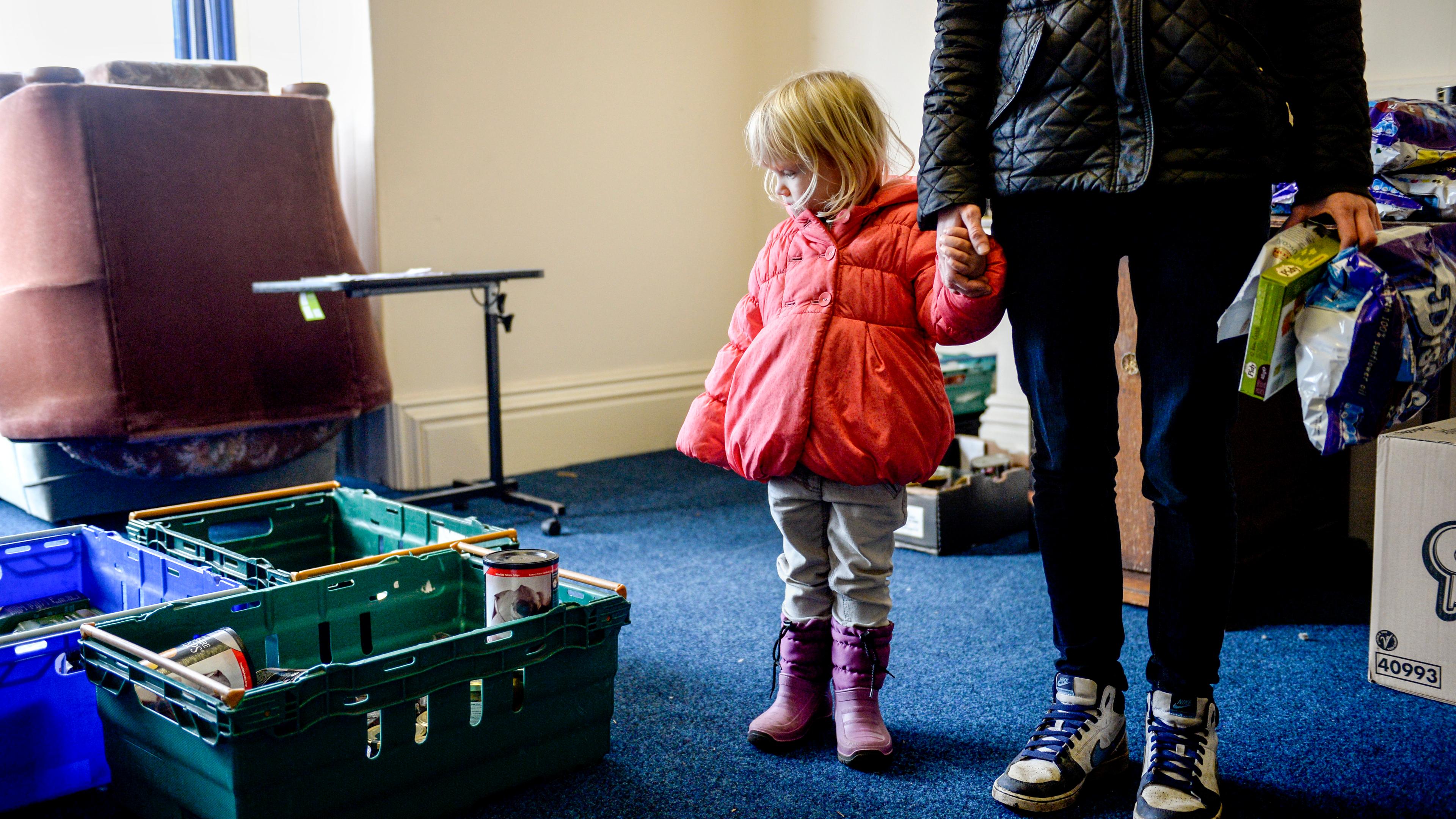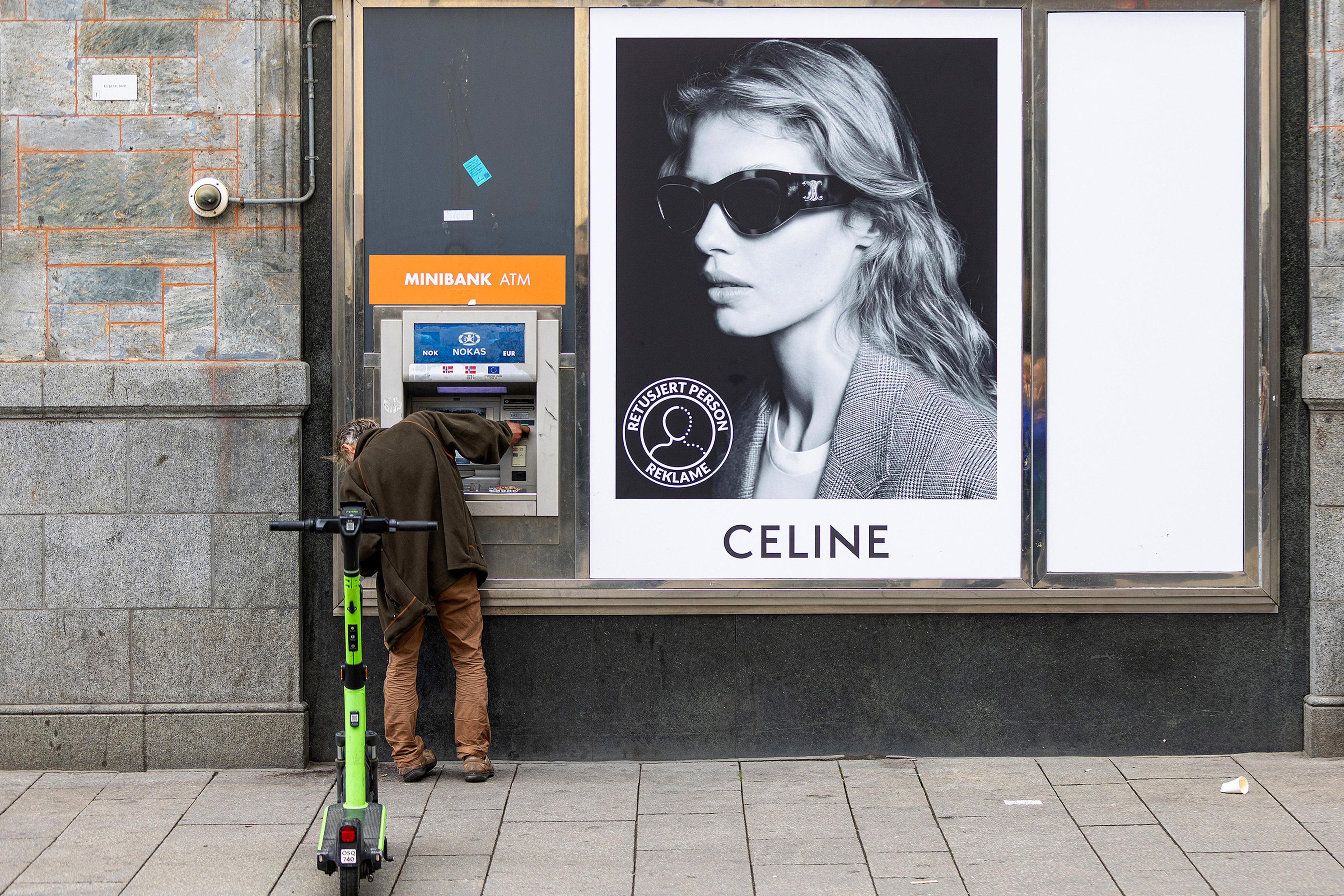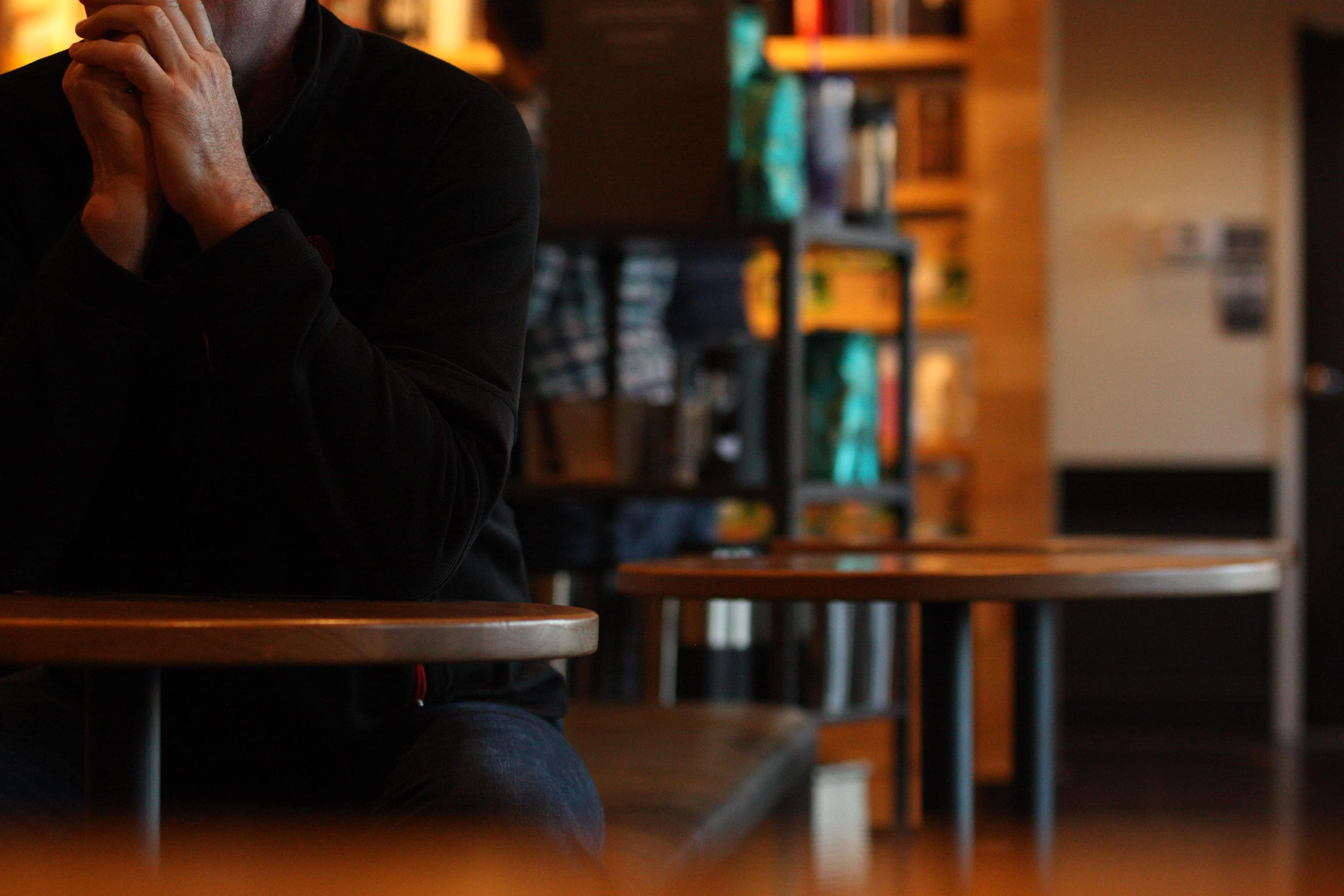How do you improve your life? Many of us assume that flourishing in the face of adversity requires a certain kind of mindset. Believing in your power, staying focused on future goals, being proactive, and leveraging social relationships are four outlooks that can help, many of us suspect, in overcoming life’s obstacles. Driven by the belief that people can change their lives by thinking differently, public organisations in the UK and the US have made a deliberate effort over the past decade to develop such a mindset among people experiencing the most persistent forms of adversity in advanced democracies: those who live on little or no income. Yet such efforts have been largely unsuccessful at reducing poverty and unemployment, and have been derided both by the people they were designed to help and by those advocating on their behalf. What has gone wrong here?
Many explanations have emerged from those studying poverty, with each account more nuanced and humanistic than the last. Back in the 1950s and ’60s, it was argued that people caught in intergenerational poverty traps were morally deficient: they did not want to work hard to advance in society and would rather depend on the state for financial support, revealing a ‘culture of poverty’ that needed to be disrupted. In subsequent decades, efforts to encourage people to create a better life for themselves were focused on education and financial literacy: those lower in socioeconomic status could be taught which decisions were beneficial in the long run (such as giving up smoking and avoiding costly loans) and how to develop the self-belief and self-control needed to stick to them. More recently, research has focused on the psychological costs of poverty itself: thinking daily about financial worries eats up cognitive ‘bandwidth’, leaving little mental space for someone to figure out how to advance their long-term goals – let alone stick to them. That’s why the latest set of interventions focus either on nudging poor people toward more acceptable behaviours, such as preparing healthier meals and saving money, or training them in cognitive skills that enable them to do these things more regularly.
Despite decades of explanations and interventions, these efforts have fallen short in one important way: what I call the assumption of free-floating mindsets. This assumption is not only held by researchers but also policymakers and charity workers engaged in well-meaning efforts to tackle poverty in rich countries specifically by focusing on the psychology of those who are low in socioeconomic status. It runs like this: everyone has the power to decide how to perceive and respond to the unavoidable constraints and challenges they face. How did such a belief become commonplace? The assumption arises from evidence that some perceptions and responses are more helpful than others, and these have earned specific names in psychology: believing in one’s own power reflects what researchers call an internal ‘locus of control’; sticking to long-term plans engages ‘self-regulation’; being positively proactive in moving toward one’s goals is called ‘approach orientation’; and leveraging relationships involves the development of ‘general social trust’ and ‘agreeableness’. Research teaches us that these are associated with better psychological functioning, higher incomes, and longer lives. When combined, these orientations appear to converge into a mindset that can lead to human flourishing.
There’s one problem: mindsets are not free-floating. They are neither optional strategies that everyone can freely adopt nor value-neutral ways of enhancing wellbeing. Instead, they are embedded in life conditions that have material, social and ideological dimensions, and this is just as true for those of us living in poverty as it is for the rest of us living in financial comfort.
As a social psychologist, I study how contexts shape the way we think, such that what appears to be a free-floating mindset is actually the product of societal forces working in subtle ways. I do this, first, by viewing decision-making under financial strain as an adaptive response to environmental needs, and, second, by examining the ideological origins of the middle-class mindsets these decisions are supposed to emulate.
The first strand involves understanding how behaviour is a response to ecological cues: how does a person with a set of fundamental needs navigate an environment filled with threats, opportunities and constraints? For those who are poor or living on a very low income, one of the most salient aspects of one’s environment is scarcity: simply not having enough money to meet one’s daily needs. In addition to being materially scarce, resources can also be unstable over time: income one week is not predictive of earnings the following week. Scarcity and instability are common even in rich countries with developed welfare states, such as the UK, where home evictions and the use of food banks accompany the increasing precarity of welfare benefits and low-wage work.
Imagine for a moment what scarcity and instability might feel like at the bottom of the socioeconomic ladder. You are constantly uncertain whether you will earn enough money (will your employer give you the hours you need this week?), while trying to avoid unexpected financial demands (will your child need a new school uniform, or will your car need repairs?). If you’re unable to pay rent, your family loses their home. When I have simulated a mild version of this experience for middle-class people – using a household budgeting game on a computer where they’re randomly assigned to be poor or financially comfortable – participants have found it to be profoundly disempowering. Those assigned to be poor reported a lower sense of power, and outlooks assumed to be the product of a freely chosen mindset (self-efficacy and locus of control) were diminished by the mere momentary lived experience of trying to meet one’s needs when one does not have enough.
I don’t think this is a sign of faulty psychological processing, or a mental disruption triggered by stress or cognitive load. It is a rational recalibration of a person’s sense of what their behaviour can actually achieve in response to ecological cues implying that there are bigger forces at play. A person’s locus of control can be seen as a barometer of their life conditions. It carries information about their relative influence on the world, which feeds into the battle of competing priorities that shapes daily decision-making. Think of the decision to stop smoking as an example. If your job exposes you to health risks (perhaps from shift work or toxins), or your attempts to find a new job yield little reward despite huge effort, or you start to notice that most people in your neighbourhood experience ill health as they age and die relatively young, why would you focus on giving up cigarettes? The potential future payoff from stopping smoking is simply not as great as the relief it gives from the chronic stress of your everyday life. When studied experimentally, the tendency to prioritise rewards in the future rather than the present diminishes among those who feel low in power or perceive instability or uncertainty in their environment. The apparent failure of self-regulation – a trait admired in those who have it, and taught to those who don’t – is not a psychological impairment, but an adaptive response to having little actual control over one’s future.
So far, we have seen how locus of control and self-regulation (orientations that emerge from contexts of privilege) make little sense to those living in precarious material circumstances. To make it easier for people to adopt a mindset that unlocks flourishing, we should first ensure that their needs are met in a stable way, so they experience real control over their life circumstances and have a future that is worth investing in.
To explore the psychological impact of poverty even further, we can move from considering the material conditions of someone’s life to examining their social conditions. Living on a low income often means living in a low-income neighbourhood in which your family is just one of many dealing with financial struggles. Such shared experiences are often described in terms of the potential they offer for community solidarity, in which neighbours help each other out because they are each aware of what the other is facing. But there are limits to what friends and family can do if they themselves are struggling to put food on the table. And where deprivation is rife, so is desperation, which can lead neighbours to feel they are competing for the resources needed to make ends meet.
Going beyond the neighbourhood, being poor in a rich country means that every encounter with those living in financial comfort, and every point of interaction with the welfare system, makes you even more conscious of your low socioeconomic standing. Simply having a positive attitude won’t get you far when you combine the stress of scarcity and instability with the isolation of feeling that you and your community have been left behind by the rest of society. Evidence shows that being placed in a situation of low relative earnings decreases happiness, and feeling low in power decreases approach orientation (the tendency of proactively aligning with your goals). A person in this situation is not mindlessly pessimistic and blind to opportunities to fulfil their aspirations; they’re regulating emotions and conserving their energies so that they don’t face continual disappointment or overlook very real threats. In Hand to Mouth (2014), a powerful chronicle of surviving on a low-wage job in the US, Linda Tirado writes: ‘We don’t plan long term because if we do we’ll just get our hearts broken. It’s best not to hope. You just take what you can get as you spot it.’
In this context, social trust and agreeableness seem just as naive as adopting a sunny disposition. If your brain picks up on cues that there are not enough resources to go around, and if your experience of social interaction is of needing to protect yourself in your neighbourhood or prove yourself beyond it, it is wise not to have a trusting attitude toward strangers. In a review of studies on the link between socioeconomic status and interpersonal orientations, psychologist Jessica Rea and I found that experiencing low socioeconomic status when young leads to lower social trust and agreeableness later in life, and this even played out in terms of less responsive and harsher parenting styles. Analysis of the UK Household Longitudinal Study by my PhD student Julia Buzan reveals that being low in income is associated with perceptions of lower community cohesion, greater neighbourhood crime, and increased social exclusion. The emerging picture is one of material adversity triggering social adversity, such that it is only wise to behave, and teach your children to behave, in ways that prevent you or them being exploited by a hostile world.
In sum, the four components of a mindset that are claimed to enable flourishing – locus of control, self-regulation, approach orientation, and being trusting and agreeable – are not only less common in low-income contexts, they fit poorly to such contexts. Financial and social precarity keep a person solidly focused on dealing with threats of the here and now, such that ‘keeping an open mind’ and ‘thinking big’ become dangerous abstractions. What those who are socioeconomically marginalised need is not mindset coaching, but action that addresses the material deprivation, financial precarity and social devaluation inflicted on them. Such action gets overlooked when these mindsets are discussed as if they are accessible and beneficial to all – free-floating – as opposed to tailored toward a privileged few.
If cultivating these mindsets is of little use in addressing some of the biggest challenges one can face, what are they good for, and where did they come from? I suspect they emerge from a culture of Western free-market capitalism and reproduce the values that maintain it. As deregulated economies emerged in the US and the UK after the Cold War, free-market thinking advanced from the political sphere into our personal lives. Realising one’s personal freedom, adopting a positive outlook, focusing on achieving personal goals and using relationships to help you along the way are four components of a mindset that I think reflects this form of market thinking turned on the self. With my former Master’s student Sabrina Paiwand, I am currently studying this advance by examining what happens when such mindsets go into overdrive.
In these situations, locus of control manifests as the unrealistic assumption of personal responsibility for everything, self-regulation becomes the maintenance of constant positive emotion, approach orientation generates an exclusive focus on self-enhancement (and optimisation of all aspects of one’s life to achieve it), and being trusting or agreeable to leverage relationships turns them into instrumental market exchanges. Think of the last time you blamed yourself for something that was out of your control, turned away from anything that spoiled your mood, obsessed about using your time productively, and weighed up your friendships in terms of the costs and benefits involved in them. We are all enmeshed in this form of subjectivity, conditioning ourselves to fit with the demands of the market, and expecting others to do the same. Yet our data show that this way of thinking allows the poor to be blamed for their misfortune, and encourages opposition to interventions to support them in favour of attempts to change individual mindsets and behaviour patterns. At its extreme, it harms the middle class too. Among those of middle or high socioeconomic status, we find this way of thinking predicts perfectionism, narcissism, Machiavellianism, stress, anxiety, and political disengagement.
Mindsets are not free-floating. In low-income settings, they respond to socioecological cues in ways that help people deal with the pressures of financial precarity and marginalisation. In middle-class settings, they can subtly reflect ideological agendas that uphold the economic status quo at the cost of everyone but those at the very top. Before we prescribe a particular way of thinking for those who appear to be struggling, we would do well to take a critical look at why we are so attuned to that outlook in the first place.








